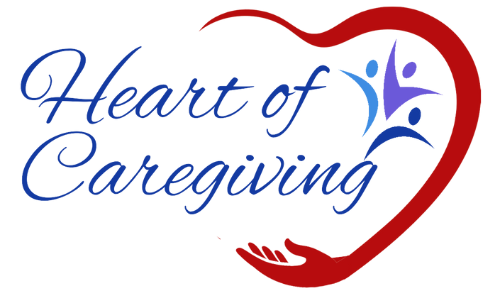Caring Through Confusion: How to Cope with Repeated Questions or Forgotten Faces
June is Alzheimer’s and Brain Awareness Month, a time to raise understanding and support for those living with dementia and the caregivers walking beside them every day.
When someone you love begins to forget your name or asks the same question over and over, it can feel like your heart is breaking in slow motion. For caregivers supporting a loved one through dementia or cognitive decline, moments like these are challenging and deeply emotional.
You may answer the same question five, ten, or even twenty times in a single afternoon. Or you may walk into a room only to be met with a blank stare from someone who once knew everything about you. These moments can stir up frustration, sadness, and even guilt. But you’re not alone, and what you’re feeling is entirely normal.
Why Does This Happen?
As dementia progresses, the parts of the brain responsible for memory, language, and emotional recognition begin to break down. Your loved one isn’t choosing to forget. They simply can’t hold on to what once came naturally. For them, the world may feel uncertain or frightening. In their confusion, you are their anchor, even if they no longer recognize you by name or relationship.
What Can You Do?
Start with compassion over correction. When a loved one asks a repeated question, our instinct is often to remind them, “You already asked me that,” or “Don’t you remember?” While these responses are understandable, they can increase your loved one’s anxiety or frustration.
Instead, try one of these gentle strategies:
💜 Answer patiently, even if it’s the tenth time. Use a calm, steady tone and eye contact.
💜 Redirect their attention when possible. Move the conversation toward a familiar song, a soothing object, or a comforting routine.
💜 Create visual reminders, simple notes on the fridge, a calendar, or a photo can reduce the need to ask the same question repeatedly.
When your loved one forgets who you are, remind yourself: they may not recall your name, but they still respond to your warmth, your voice, and your presence. Focus on connection, not correction. A gentle touch on the hand, a smile, or sitting quietly beside them can offer more than words ever could.
Take Care of Your Heart, Too
Dementia caregiving is emotionally draining. When the person you’re caring for no longer recognizes you, it can feel like a loss, and in many ways, it is. You’re grieving the relationship as it was, even as you continue to care with love and devotion.
Give yourself permission to feel those losses without guilt. Talk to a trusted friend, journal your thoughts, or join a support group. You’re not being selfish by acknowledging your pain, you’re being human.
Taking breaks doesn’t mean you’re stepping away from love. It means you’re strengthening your ability to keep showing up.
You are doing meaningful, heart-led work. Even when the words are lost, your care still reaches them
For additional support and guidance, visit the Alzheimer’s Association and the Alzheimer’s Foundation of America, both offer valuable resources for caregivers, including helplines, education, and community support.
For solutions for caregivers’ common mistakes, check out 21 Mistakes Caregivers Make & How to Avoid Them: Solutions and Strategies to Reduce Stress and Increase Happiness, available on Amazon! Are you looking for a dynamic speaker on caregiver empowerment? Go to my speaking page, and let’s connect!
The advice offered is for general information only; please consult your healthcare team, legal, or financial advisors for guidance.


